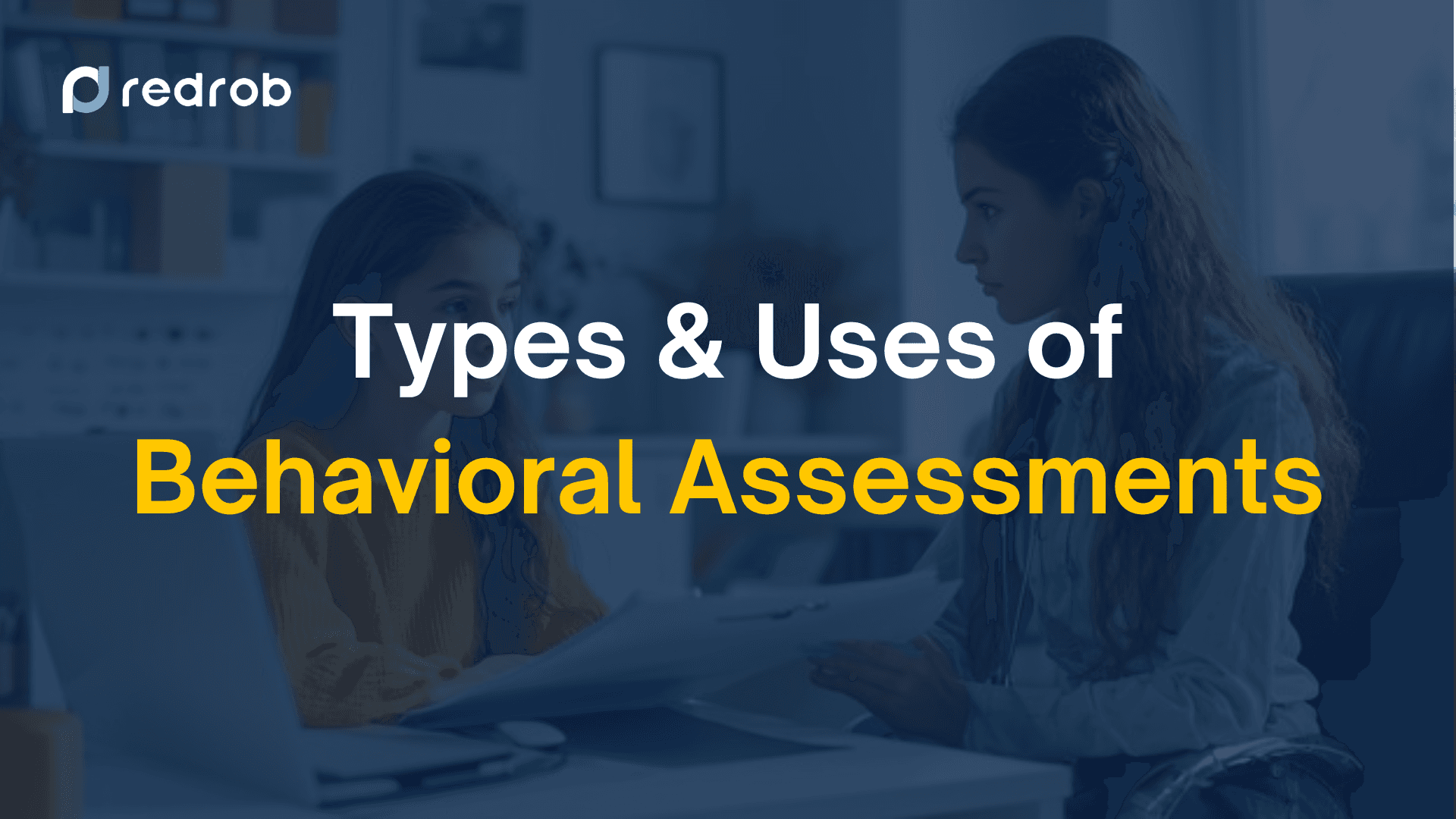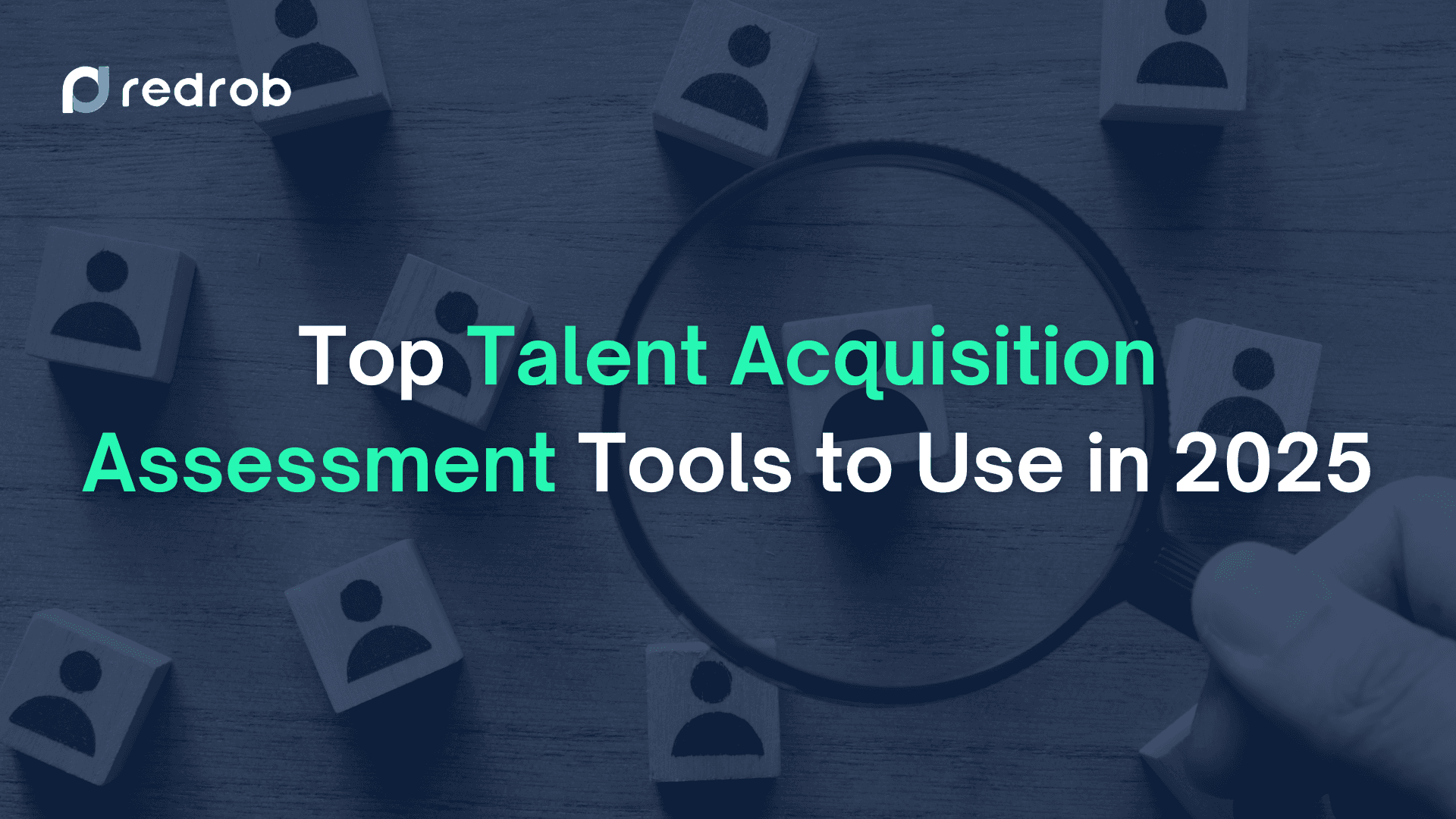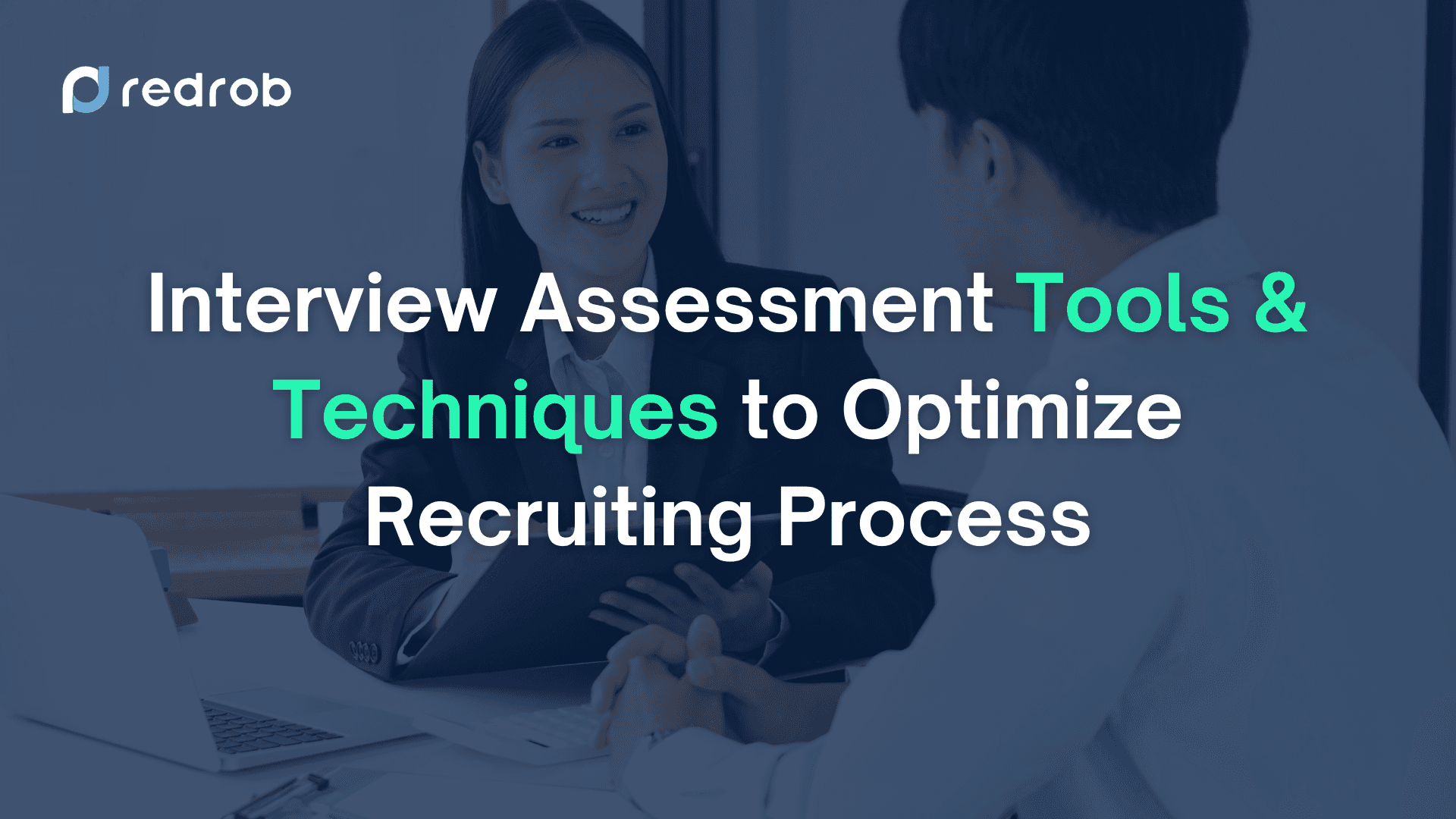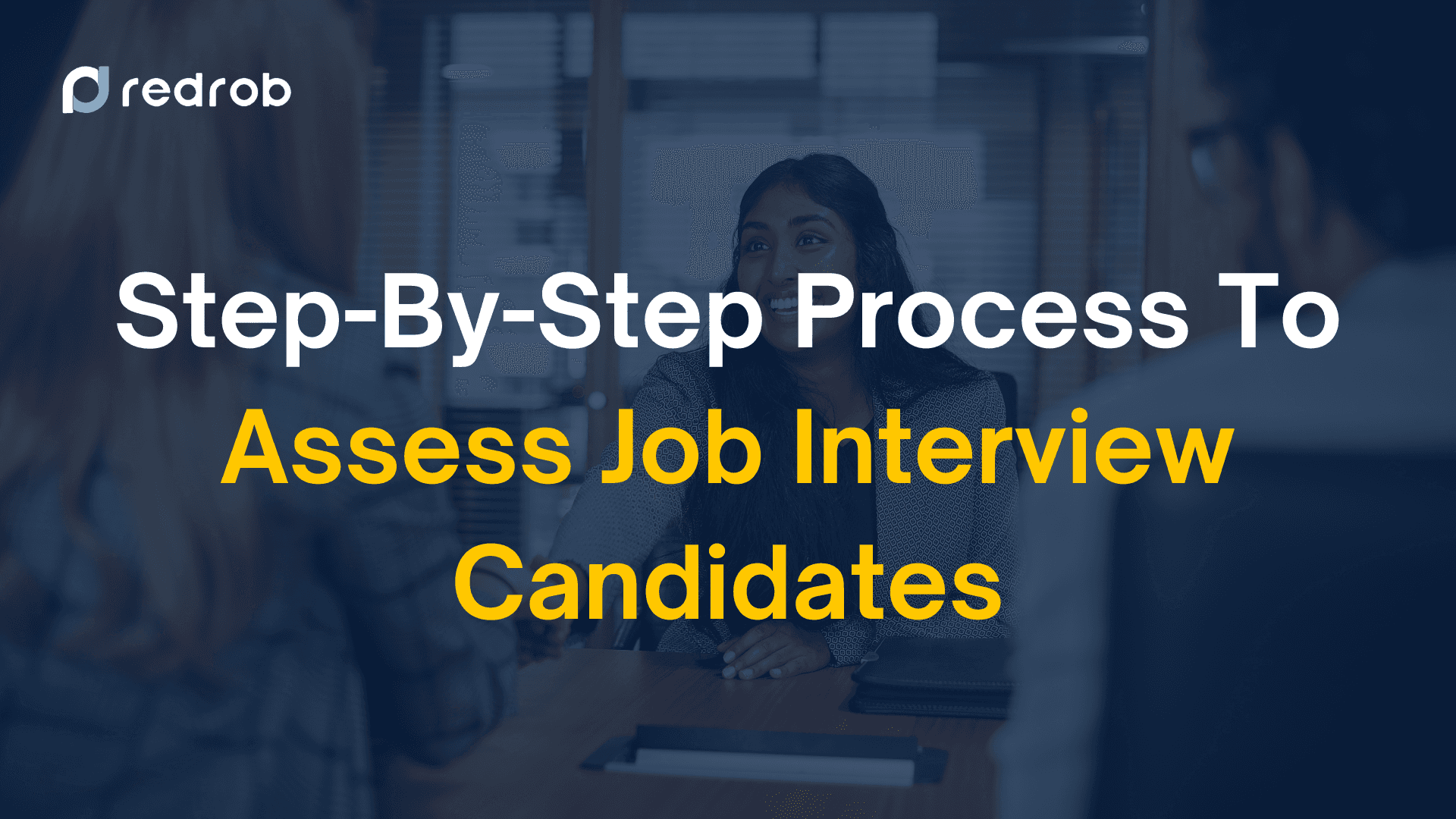Behavioral Assessments
8 min read
•
Sep 26, 2024

Soumyata Singh
Meeting your workforce requirements often requires quickly judging the candidates’ skills and capabilities to be a productive member of your team. But what are the odds of making the right decision? While that may vary according to your experience and decision making skills, you must know that a bad hire can cost a company up to INR ₹5,40,000 or more.
Nonetheless, you still need to hire quicker. In that case, behavioral assessments help you know and test a candidate beyond their professional skills. These assessments give you a clear way to evaluate how candidates act in different situations.
This way employers can make better hiring decisions by focusing on how a person behaves, rather than just their experience or qualifications. They also allow you to predict future behavior in the workplace, which is crucial for determining if a candidate is the right fit.
By using behavioral assessments, you can gauge not only cognitive abilities but also how someone handles teamwork, conflict, or pressure. Understanding a candidate's behavior gives you insight into how they will perform in the role and mesh with your company culture.
This blog is all about behavioral assessments and how you can use them to make better hiring decisions. So, keep reading!
Importance of Behavioral Assessments in Hiring
When you're recruiting candidates, understanding their behavior is crucial for long-term success. Behavioral assessments provide insights into how a candidate might perform and fit within your team. Here’s why these assessments matter:
Enhanced Predictability
Behavioral assessments help predict how candidates will act in real-life work scenarios. This makes it easier to determine how well they’ll adapt to job challenges. For example, most employers who use assessments report better hiring outcomes.
Improved Hiring Decisions
These assessments provide you with data to support your hiring choices. You’re not just relying on gut instinct or résumés. Instead, you're assessing behavior to make decisions that lead to better job matches.
Reduction of Bias
By using structured behavioral assessments, you reduce bias in your hiring process. Everyone gets the same evaluation, ensuring fairness. This helps you avoid subjective judgments and promotes diversity.
Assessment of Cultural Fit
Cultural fit is essential when recruiting candidates. A behavioral assessment shows how well someone will align with your company’s values and work environment. For example, if teamwork is crucial, you can evaluate how a candidate interacts with others under pressure.
Reduction in Employee Turnover
Recruiting candidates who fit the role and company culture can lower turnover rates. Employees who perform well and align with company values are more likely to stay. This not only boosts employee retention but also saves you the cost of rehiring and retraining.
Behavioral assessments ensure that you hire the right people, but how exactly are these assessments conducted? Let’s explore that next.
You get 3500+ customizable assessment tests for all job requirements that let you evaluate candidates beyond their professional skills. Know more about our assessment tools.
Types of Behavioral Assessments
When using behavioral assessments, you have several methods to choose from. Each one offers unique insights into a candidate’s behavior and fit for the role. Let’s know more about the most common types.
1. Personality Assessments
Personality assessments measure traits like openness, conscientiousness, and emotional stability. These traits can predict how well a candidate will perform in certain environments. For example, someone scoring high in conscientiousness may excel in roles requiring attention to detail. In fact, it is predicted that personality assessments can improve hiring accuracy by up to 60%.
2. Situational Judgment Tests (SJTs)
SJTs present candidates with hypothetical work scenarios. You see how they would react to various challenges. This method is ideal for gauging decision-making and problem-solving skills. For instance, if you’re hiring for a management position, you can assess how a candidate handles conflict within a team.
3. Behavioral Interviews
In behavioral interviews, you ask candidates how they’ve handled situations in the past. The idea is that past behavior predicts future performance. You might ask, “Tell me about a time when you had to meet a tight deadline.” This helps you see how the candidate might perform under similar circumstances in your company.
4. Assessment Centers
Assessment centers combine multiple behavioral assessments into one event. Candidates go through simulations, group exercises, and interviews. This gives you a well-rounded view of their abilities. In a 2023 report, it was revealed that 9 out of 10 employers using assessment centers found it to be “very effective”.
5. Work Samples
Work samples involve candidates completing tasks similar to what they’d face on the job. You can assess their skills directly and see if they match the role’s demands. For example, if you’re hiring a graphic designer, you might ask them to create a logo based on a brief. This method is highly predictive of job performance.
Understanding the various types of behavioral assessments can help you choose the right one for your hiring needs. Next, let’s look at the tools used to carry out these assessments.
4 Important Behavioral Assessment Tools
Behavioral assessments rely on several tools to gather useful insights about a candidate's performance and potential. Each tool offers a unique way to evaluate behavior and make informed hiring decisions.
1. Interviews
Interviews remain a core tool in behavioral assessments. They help you ask targeted questions to understand how candidates handled past situations. For example, asking, “How do you prioritize tasks during high-pressure times?” gives insight into their problem-solving abilities. Structured interviews can improve the chances of selecting the right candidate by up to 60%.
2. Psychometric Testing
Psychometric tests measure cognitive abilities, personality traits, and emotional intelligence. These tests give you a more objective view of a candidate’s strengths and weaknesses. Companies using psychometric testing as part of their behavioral assessment process report more accurate predictions of job performance. For example, a company might use these tests to assess a candidate’s ability to manage stress in high-pressure roles.

3. Direct Supervision
Observing candidates under direct supervision is another effective tool. It allows you to see how they behave in real-time work scenarios. This method is particularly useful for assessing leadership or teamwork skills. Supervisors can provide feedback based on what they observe, making it a valuable behavioral assessment approach.
4. Self-Assessment
Self-assessments let candidates evaluate their own behavior, skills, and attitudes. While it may seem subjective, self-assessment can highlight areas where candidates believe they excel or need improvement. It also encourages self-awareness, a key trait in many roles. When paired with other assessment tools, self-assessments provide a fuller picture of a candidate's potential.
With these tools, you can get a well-rounded view of how candidates will perform on the job. Next, let’s understand how behavioral assessments are conducted in practice.
How Behavioral Assessments are Conducted
Behavioral assessments evaluate how candidates approach different aspects of their work. These assessments focus on key behaviors that determine success in various roles. Here's how you can assess some of the most critical areas.
Result Orientation
In a behavioral assessment, you gauge how candidates focus on achieving results. You might ask questions like, “Tell me about a time you exceeded your goals.” This helps you measure their drive and commitment to meeting targets.
Teamwork
You can evaluate teamwork by observing how candidates interact in group exercises or simulations. Look for behaviors like cooperation, communication, and willingness to share responsibilities. For example, if you're hiring for a collaborative role, seeing how they contribute in a team setting is essential.
Conflict Management
Assessing how someone handles conflict is crucial, especially for leadership or customer-facing roles. Ask candidates about a time they managed a disagreement at work. Their response gives insight into their problem-solving and communication skills. Conflict management can reduce workplace issues by up to 30%.
Trust Establishment
Trust is a key factor in any successful workplace relationship. In behavioral assessments, you can measure how candidates build trust through transparency and reliability. Questions like, “How do you maintain trust with team members?” allow you to assess their interpersonal skills.
Work Delegation
Effective delegation is critical for leadership roles. You can assess this by asking how candidates manage tasks among team members. Strong candidates will provide examples of successfully assigning tasks while maintaining accountability. This shows they understand the balance between oversight and autonomy.
By focusing on these key areas, you ensure that your behavioral assessment captures a comprehensive view of the candidate's abilities. Next, we’ll look at the advantages and disadvantages of using these assessments in your hiring process.
Advantages and Disadvantages of Behavioral Assessments
Behavioral assessments offer many benefits, but they also come with some challenges. Understanding both will help you decide how to incorporate them into your hiring process.
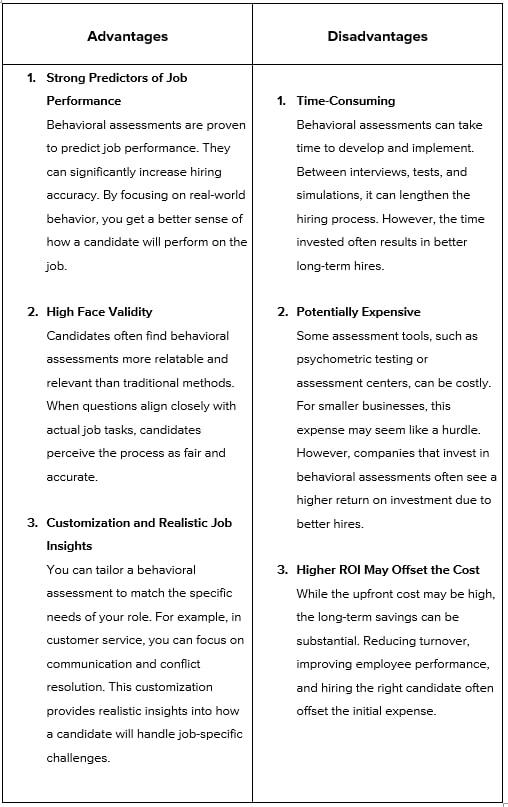
By weighing the pros and cons, you can decide if a behavioral assessment fits into your hiring strategy. Next, let’s explore a few best practices to ensure you get the most out of these assessments.
Best Practices for Implementing Behavioral Assessments
To get the most out of behavioral assessments, it’s important to follow certain best practices. These steps help you ensure accuracy, fairness, and effectiveness in your hiring process.
1. Training Hiring Managers
Training your hiring managers is key to making behavioral assessments work. Managers should know how to ask the right questions and interpret results. Proper training improves assessment accuracy. When your team understands what to look for, you get more reliable insights into a candidate’s behavior.
2. Standardizing Assessment Procedures
Consistency is crucial in any behavioral assessment. Standardizing the process ensures all candidates are evaluated equally. This reduces bias and improves decision-making. For example, use the same set of questions or simulations for every candidate applying for a specific role.
3. Monitoring and Continuous Improvement
Behavioral assessments should evolve with your hiring needs. Regularly review your assessment methods and results. Monitoring helps you identify areas for improvement. For example, if your assessments aren’t predicting job performance well, you may need to adjust your focus or tools.
4. Legal Compliance and Privacy Concerns
Always ensure your behavioral assessment practices comply with legal requirements. This includes following anti-discrimination laws and protecting candidates’ privacy. Mishandling personal data or unintentionally discriminating can lead to legal challenges. Ensure that all personal information gathered during assessments is secure and only used for its intended purpose.
By following these best practices, you can make behavioral assessments a powerful tool in your hiring strategy.
Assess Candidates Better with Redrob
Behavioral assessments are a critical part of modern hiring. They help you predict job performance and ensure a good cultural fit. By focusing on how candidates handle real-world situations, you make data-driven decisions that lead to stronger hires.
While behavioral assessments can be time-consuming and costly, the benefits far outweigh the challenges. They give you clear, actionable insights that improve your overall hiring process. Embracing these assessments can help you build a more efficient and effective team.
We hope this blog helps you understand behavioral assessments and its uses better.
Redrob offers you one of the best recruiting platforms with excellent tools that include:
A comprehensive ATS
AI-powered resume analysis and profile ranking
3500+ customizable assessment tests for screening candidates
Psychometric and cognitive skill tests
You can utilize the best of features to recruit better and faster. Get to know us.
